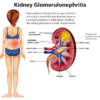Understanding Food Poisoning and Ayurvedic Remedies
Understanding Food Poisoning and Ayurvedic Remedies is a common ailment that affects millions of people globally each year. It typically results from consuming contaminated food or beverages, leading to various symptoms that can range from mild discomfort to severe illness. In Ayurveda, the ancient system of medicine from India, food poisoning is addressed with a holistic approach that emphasizes the balance of the body’s energies, known as doshas. This blog explores food poisoning, its causes, symptoms, and Ayurvedic remedies that can help alleviate its effects.
What is Food Poisoning?

Food poisoning occurs when a person ingests food or water contaminated with harmful pathogens, such as bacteria, viruses, or parasites. It can also result from consuming toxins produced by these microorganisms. Common sources include undercooked meat, contaminated vegetables, unpasteurized dairy products, and improperly stored foods.
Causes of Food Poisoning
- Bacterial Contamination: The most prevalent cause of food poisoning, with bacteria like Salmonella, E. coli, and Listeria being the most notorious culprits.
- Viral Infections: Viruses such as Norovirus and Hepatitis A can lead to foodborne illnesses, often transmitted through contaminated food or water.
- Parasitic Infections: Parasites like Giardia and Cryptosporidium can contaminate food and water, causing gastrointestinal distress.
- Chemical Contaminants: Pesticides, heavy metals, and other chemicals can also lead to food poisoning.
- Improper Food Handling: Poor hygiene practices in food preparation and storage can contribute to the proliferation of pathogens.
Symptoms of Food Poisoning
Symptoms can manifest anywhere from a few hours to several days after consuming contaminated food. Common signs include:
- Nausea and vomiting
- Diarrhea
- Abdominal pain and cramps
- Fever
- Headache
- Fatigue
While most cases of food poisoning resolve on their own within a few days, severe symptoms may require medical attention, particularly in vulnerable populations such as children, the elderly, and those with weakened immune systems.
Ayurvedic Perspective on Food Poisoning
In Ayurveda, health is viewed as a balance of the three doshas: Vata, Pitta, and Kapha. Food poisoning is often seen as an imbalance caused by the consumption of impure or inappropriate food. The toxins that accumulate in the body, known as “ama,” can lead to digestive issues and overall discomfort.
Doshas and Food Poisoning
- Vata Dosha: Characterized by air and space, an imbalance may lead to symptoms like bloating and gas.
- Pitta Dosha: Composed of fire and water, Pitta imbalance can result in burning sensations and inflammation.
- Kapha Dosha: Made up of earth and water, Kapha imbalance often leads to lethargy and congestion.
Each individual’s constitution determines how food poisoning affects them, and Ayurveda tailors treatments based on one’s dosha.
Ayurvedic Remedies for Food Poisoning
1. Ginger Tea
Ginger is renowned for its anti-nausea properties. To prepare ginger tea:
- Grate a small piece of fresh ginger and boil it in water for 10 minutes.
- Strain and add a teaspoon of honey or lemon for flavor.
- Sip slowly to ease nausea and aid digestion.
2. Tulsi (Holy Basil)
Tulsi is revered in Ayurveda for its antimicrobial properties. To use it:
- Boil a handful of fresh Tulsi leaves in water.
- Strain and drink the infusion to help reduce inflammation and combat pathogens.
3. Cumin and Coriander
Both cumin and coriander aid digestion and can help alleviate symptoms of food poisoning.
- Prepare a decoction by boiling one teaspoon of cumin seeds and one teaspoon of coriander seeds in two cups of water.
- Strain and consume the liquid to ease stomach discomfort.
4. Buttermilk with Black Salt
Buttermilk, or “chaas,” is cooling and probiotic-rich. Mixing it with black salt can enhance its digestive benefits.
- Combine one cup of buttermilk with a pinch of black salt and a sprinkle of roasted cumin powder.
- Consume to restore gut flora and aid digestion.
5. Aloe Vera Juice
Aloe vera has soothing properties that can help relieve gastrointestinal distress.
- Extract the gel from fresh aloe vera leaves and blend it with water.
- Drink a small amount to soothe the digestive tract.
6. Turmeric Milk
Turmeric has powerful anti-inflammatory and antimicrobial properties. To prepare turmeric milk:
- Boil a cup of milk and add a teaspoon of turmeric powder.
- Sweeten with honey if desired and drink it warm to promote healing.
7. Rice Water
Rice water is an excellent remedy for diarrhea and helps rehydrate the body.
- Boil rice in plenty of water, then strain the liquid.
- Drink the rice water to replenish fluids and nutrients.
8. Lemon Water
Lemon is rich in vitamin C and has detoxifying properties.
- Squeeze half a lemon into a glass of warm water.
- Drink it to help cleanse the system and support digestion.
Dietary Recommendations During Recovery
While recovering from food poisoning, it’s crucial to consume easy-to-digest foods. Here are some Ayurvedic dietary guidelines:
- Stay Hydrated: Drink plenty of water, herbal teas, or electrolyte-rich drinks to prevent dehydration.
- Light Foods: Opt for light foods such as rice, khichdi (a mixture of rice and lentils), and boiled vegetables.
- Avoid Heavy Foods: Stay away from fried, spicy, and fatty foods that can aggravate the stomach.
- Probiotics: Incorporate probiotic-rich foods like yogurt to restore gut health.
- Warm Foods: Consume warm, cooked foods rather than cold or raw foods, as they are easier on the digestive system.
When to Seek Medical Attention
While many cases of food poisoning resolve without intervention, certain symptoms warrant medical attention:
- Severe abdominal pain
- High fever (over 101.5°F or 38.6°C)
- Bloody or prolonged diarrhea
- Signs of dehydration (dizziness, dry mouth, little or no urination)
Conclusion
Food poisoning can be an unpleasant experience, but Ayurveda offers a wealth of natural remedies and dietary guidelines to promote healing and restore balance. By understanding the root causes and symptoms of food poisoning, individuals can take proactive measures to protect their health. Incorporating Ayurvedic principles not only helps alleviate symptoms but also fosters long-term digestive health.
Remember, prevention is always better than cure. Adopting good hygiene practices, ensuring food safety, and being mindful of what you eat can significantly reduce the risk of food poisoning. Should you experience symptoms, consider these Ayurvedic remedies and dietary recommendations, and don’t hesitate to seek professional medical advice if necessary.
Incorporating these practices into your lifestyle can lead to a healthier, more balanced approach to food and well-being.








Leave a reply